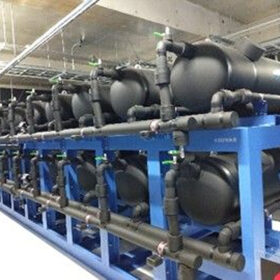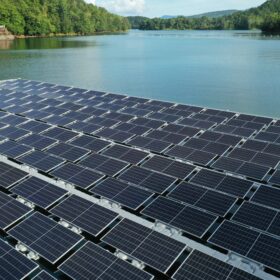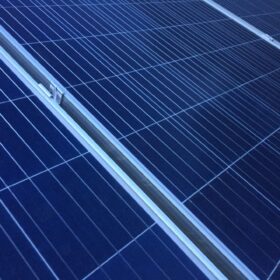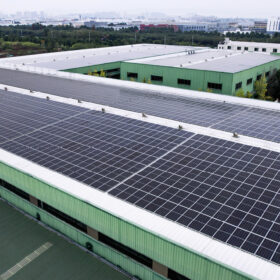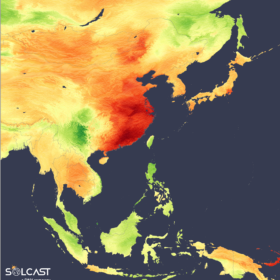PVH launches foundation system for solar installations on complex terrain
PV Hardware (PVH) has released PVH Terra, a foundation system designed to improve solar plant installation on challenging terrain. The system aims to improve stability in expansive soils, frost-affected areas, and sites with poor geotechnical conditions while reducing costs and environmental impact.
Japanese energy supplier to use green hydrogen for district heating, power
Akasaka Heating & Cooling Supply says it will use green hydrogen produced at an unspecified location in Japan to produce heat and electricity for its Akasaka 5-chome district heating system in central Tokyo.
Mibet launches new floaters for PV systems on deep water
Mibet has released new floaters for PV systems deployed in deep water. The G4M system, already installed in Indonesia on a body of water with a depth of 60 meters, allows the solar panels to be tilted at 5 degrees to 15 degrees.
Philippine province approves 300 MW of solar
The provincial board of Ilcos Norte in the Philippines has approved the development of a 300 MW solar farm. Manila-headquartered Opus Solar Enery Corp. will develop the project.
Israel installs 900 MW of PV capacity in 2024
Recent data show Israel added 900 MW of solar PV capacity in 2024. The majority of the newly-added capacity stems from projects operating under merchant power purchase agreements (PPAs).
Mexico announces battery storage mandate for renewable energy plants
A month after India introduced an energy storage mandate for renewable energy plants and China scrapped its own, Mexico has stepped forward with an ambitious 30% capacity requirement, alongside plans to add a further 574 MW of batteries by 2028.
The Hydrogen Stream: Trafigura drops $471 million green H2 plan in Australia
Trafigura says it has scrapped plans for a $471.2 million green hydrogen plant in Australia after a feasibility study, while Aurora Energy Research says Germany, Spain, Sweden, and Great Britain could drive over 50% of renewable energy demand by 2035, requiring €100 billion in investment.
Axpo offtakes 60 MW from Hungarian solar plants
Swiss power producer Axpo has signed its first power purchase agreement (PPA) in Hungary for three solar plants that began operations in 2024.
Digging into China’s solar capacity numbers
Amid a record amount of new solar capacity added in China in 2024, the share held by small-scale, “distributed” arrays fell to 38%, from 58% in 2022. Grid constraints, policy changes, and pricing adjustments have impacted home and business solar arrays, as Vincent Shaw reports, from Shanghai.
Siberian high, late La Niña onset drive sunny start to 2025 in East Asia
In a new weekly update for pv magazine, Solcast, a DNV company, says much of East Asia enjoyed a sunnier-than-usual start to the year due to a persistent Siberian high and delayed La Niña onset. However, a fully developed La Niña brought heavy cloud cover and flooding to other parts of the region, especially Indonesia.

